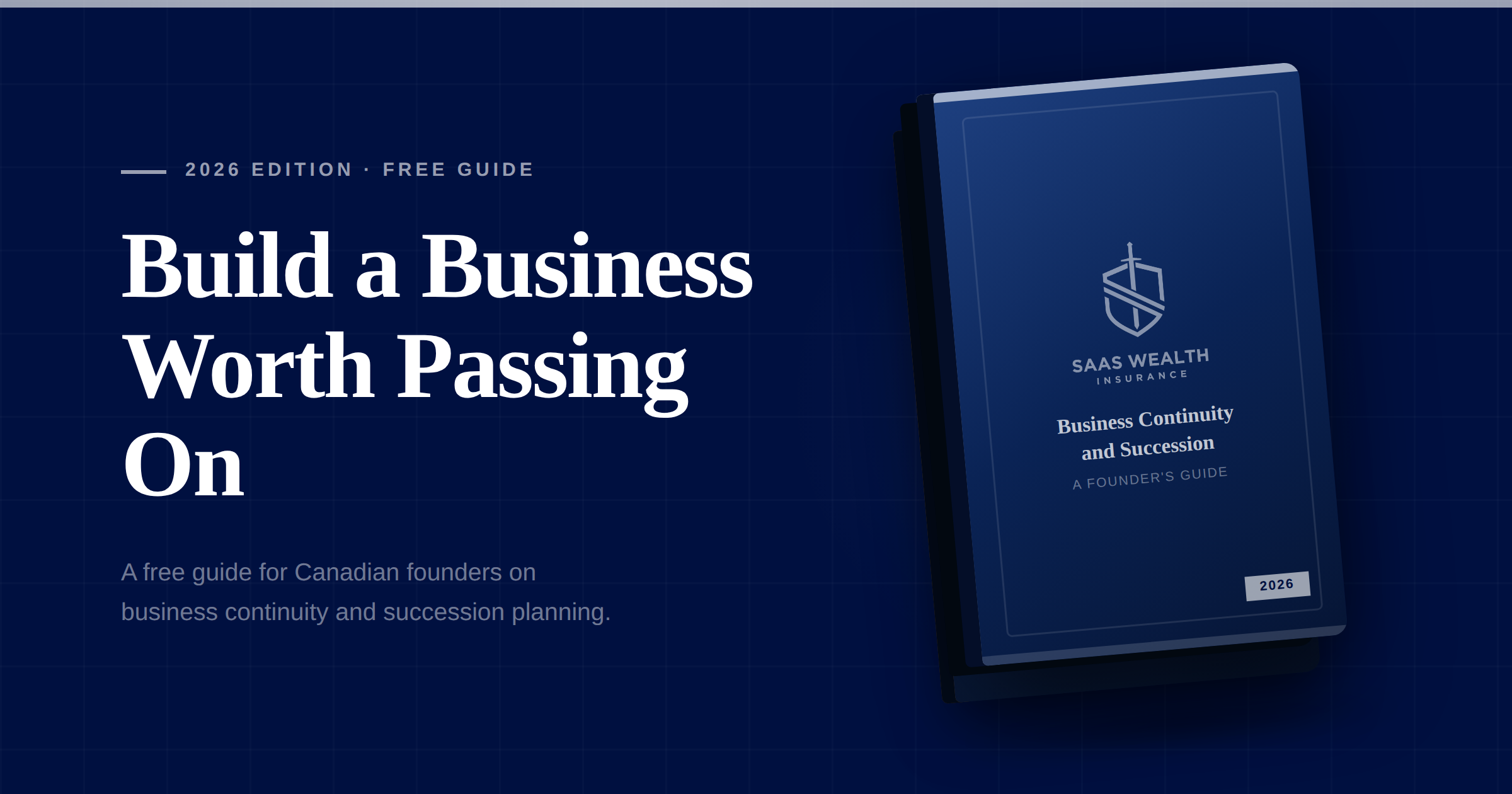“It will never happen to me.”
That’s what everyone thinks. It’s probably crossed your mind in the past, too. Unforeseen circumstances are something other people have to deal with – not you.
Right?
You’re healthy now, so there’s no chance you’ll end up severely ill in the future. You’re able now, so there’s no chance you’ll become disabled. You’re alive and well, so there’s no chance you’ll suffer an untimely death.
But there’s a reason these sorts of events are called unthinkable. They happen without warning, and are nearly impossible to predict or prepare for. That’s why if you or your family rely on your business for financial security, you absolutely must look into shareholder or Key Person Insurance.
Generally speaking, most early-stage business owners use term coverage, which means their insurance applies to a fixed span of time, such as ten or twenty years. Permanent insurance is another option, and potentially a better one, depending on your needs.
We’ll dive into a deeper comparison between term and permanent insurance in a different article—for now, let’s focus more on the why of business insurance.
Why Look Into Shareholder/Key Person Insurance?
There are two principal groups that will benefit from business insurance.
- The owner: This insurance provides a payout equal to the value of the shares the deceased or disabled individual held in the company, payable either to the individual or their estate.
- Other shareholders: Surviving shareholders can buy out the deceased or disabled shareholder, allowing them to continue developing the business on their own rather than having to work with the deceased individual’s estate or with someone who can no longer contribute to the company.
The above mechanism is typically put in place through a company’s shareholder’s agreement. And here’s where things get a bit complicated. As noted by Vancouver business lawyer Steve Parr, shareholders agreements are some of the most notorious in his field for a few reasons.
- They’re long, often ranging from 15-60 pages.
- They contain legalese that is very difficult for a non-practitioner of business law to understand.
- The benefits of a shareholders agreement are largely long-term and difficult to conceptualize in the immediate future.
However, they’re also crucial to ensuring your business succeeds.
Why Shareholders Agreements and Business Insurance Go Hand-in-Hand
As Parr notes, a business arrangement isn’t so different from getting married. You’re sharing your finances, and you’re marrying your financial outcomes to another person. There’s a hint of irony in that—50% of marriages fail, and many people who get married therefore agree to sign a prenuptial agreement.
90% of businesses fail, yet most businesses don’t have a shareholder’s agreement in place.
A shareholders agreement ensures that, if your business has multiple shareholders, it is not crippled by the loss of one to illness, disability, death, or disengagement. It also provides a clear framework for anyone who wants to exit the business for any reason. From an insurance perspective, there are a few relevant mechanisms of which you should be aware.
- The Shotgun Clause: This allows a partner to force another shareholder (or shareholders) to either sell their stake in the company or buy someone else’s stake. If someone is no longer able to contribute to the company but refuses to give up their shares, this clause can help resolve the dispute.
- Default Provisions: This establishes certain duties and responsibilities for each shareholder. Should the shareholder fail to fulfill these duties, a default provision can be used to trigger a mandatory buyout, often at a discount.
- Death: This establishes a process for resolving disputes between the company and a shareholder’s estate in the event that said shareholder suffers an untimely death.
Make The Right Decision for Your Business
Business law can be complicated and confusing. It can sometimes be difficult to know what decision is the right one. That’s why it’s crucial to work with professionals who understand your business and the challenges it faces.
SaaS Wealth Insurance offers precisely that—we’ll work with you to build an advisory with a foundation of trust and integrity, one that provides guidance tailored to your unique situation.







